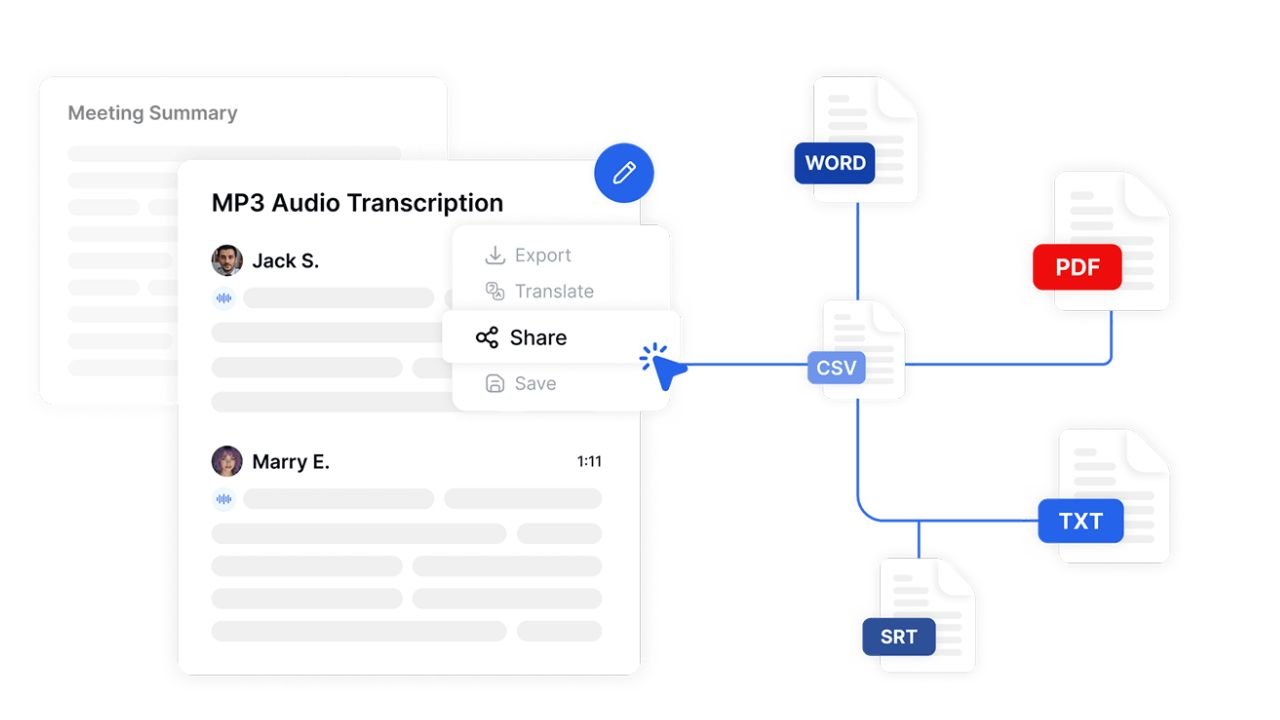Converting audio files to text has become an essential practice for businesses, content creators, and individuals looking to maximize the value of their recorded content. With the exponential growth of podcasts, webinars, interviews, and voice recordings, transforming mp3 to text into searchable, editable text documents offers numerous advantages that can significantly impact productivity and accessibility.
The process of converting MP3 to text, also known as audio transcription, involves using specialized software or services to analyze audio content and generate accurate written transcripts. This technology has evolved dramatically, with modern transcription tools achieving impressive accuracy rates and processing speeds that make large-scale audio archiving feasible for organizations of all sizes.
Understanding the benefits of converting MP3 files to text can help you make informed decisions about implementing this technology in your workflow. From improving content accessibility to enhancing search capabilities, audio-to-text conversion offers practical solutions for common challenges faced by content creators and businesses alike.
Enhanced Content Accessibility and Inclusion
Converting MP3 files to text dramatically improves content accessibility for diverse audiences. Text transcripts enable individuals with hearing impairments to access audio content that would otherwise remain unavailable to them. This inclusivity extends beyond accessibility requirements, creating opportunities to reach broader audiences who prefer reading over listening or who consume content in sound-restricted environments.
The availability of text versions allows people to engage with your audio content during commutes on public transportation, in quiet office spaces, or in any situation where listening to audio isn’t practical. This flexibility increases content consumption and engagement rates, as users can choose their preferred method of content interaction based on their current circumstances.
Text transcripts also support multilingual accessibility when combined with translation services. Once audio content exists in text format, it becomes significantly easier to translate into multiple languages, expanding your global reach and making content available to non-native speakers who may struggle with audio comprehension but can read the language more effectively.
Improved Search Engine Optimization and Discoverability
Search engines cannot index audio content directly, but they excel at cataloging and ranking text-based content. Converting MP3 files to text creates searchable content that can boost your website’s SEO performance and improve organic search rankings. Transcripts provide rich, keyword-dense content that helps search engines understand the topics and themes discussed in your audio files.
The searchability extends beyond external search engines to internal content management systems. Text transcripts enable powerful internal search capabilities, allowing team members to quickly locate specific information within extensive audio archives. Instead of listening through hours of recordings to find particular details, users can search for keywords and jump directly to relevant sections.
This enhanced discoverability proves particularly valuable for educational institutions, research organizations, and businesses with extensive audio libraries. The ability to quickly locate and reference specific information from past recordings saves countless hours and increases the practical value of archived content.
Streamlined Content Repurposing and Distribution
Text transcripts serve as valuable source material for creating derivative content across multiple formats and platforms. A single MP3 file can be transformed into blog posts, social media content, email newsletters, white papers, and other written materials, maximizing the return on investment for original audio content creation.
The editing and refinement process becomes significantly more manageable when working with text rather than audio. Content creators can easily identify key quotes, main points, and compelling sections that work well for social media posts or marketing materials. The text format allows for quick copying, pasting, and reformatting to suit different platforms and audience preferences.
This repurposing capability proves especially beneficial for podcast creators, educators, and business professionals who regularly produce audio content. Instead of creating entirely new content for different channels, they can leverage existing audio recordings to maintain consistent messaging across all communication platforms while adapting the format to suit each medium’s specific requirements.
Efficient Content Analysis and Documentation
Converting MP3 to text facilitates comprehensive content analysis and documentation processes. Text format enables easy identification of key themes, frequently discussed topics, and important insights that might be difficult to track in audio format alone. This analytical capability proves valuable for market research, customer feedback analysis, and performance evaluation.
Documentation becomes more systematic and organized when audio content exists in text format. Meeting recordings, interviews, and conference calls can be converted to text and integrated into project management systems, knowledge bases, and documentation workflows. This integration ensures that valuable information discussed in audio format doesn’t get lost or forgotten.
The text format also enables efficient collaboration and review processes. Team members can quickly scan transcripts for relevant information, add comments and annotations, and share specific sections with colleagues without requiring them to listen to entire audio files. This streamlined approach to information sharing improves team productivity and communication effectiveness.
Cost-Effective Long-Term Storage and Maintenance
Text files require significantly less storage space than audio files, making long-term archiving more cost-effective and manageable. While MP3 files can consume substantial storage resources, especially for organizations with extensive audio libraries, text transcripts occupy minimal space while preserving the essential information content.
The reduced storage requirements translate to lower infrastructure costs and simplified backup procedures. Text files can be easily integrated into existing document management systems without requiring specialized audio hosting or streaming capabilities. This compatibility with standard business software and systems reduces technical complexity and ongoing maintenance requirements.
Additionally, text format provides better long-term accessibility and format stability. While audio file formats may become obsolete or require specialized software to access, plain text remains universally readable across different systems and platforms, ensuring that archived information remains accessible regardless of future technological changes.
The Future of Audio Content Management
Converting MP3 to text represents a fundamental shift toward more versatile and accessible content management practices. As the volume of audio content continues to grow across industries, the ability to transform audio into searchable, editable, and repurposeable text becomes increasingly valuable for organizations seeking to maximize their content investments.
The integration of audio-to-text conversion into regular content workflows enables more strategic approaches to information management and content distribution. Rather than treating audio files as standalone assets, organizations can view them as source material for comprehensive content ecosystems that span multiple formats and platforms.
By implementing MP3 to text conversion processes, you create opportunities to unlock the hidden value in existing audio archives while establishing efficient workflows for future content creation and management initiatives.



